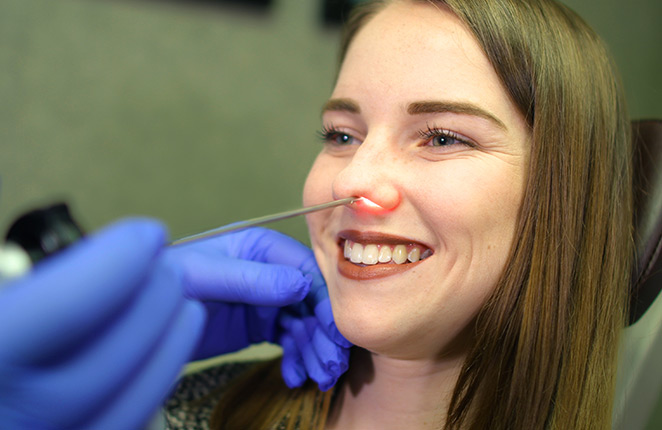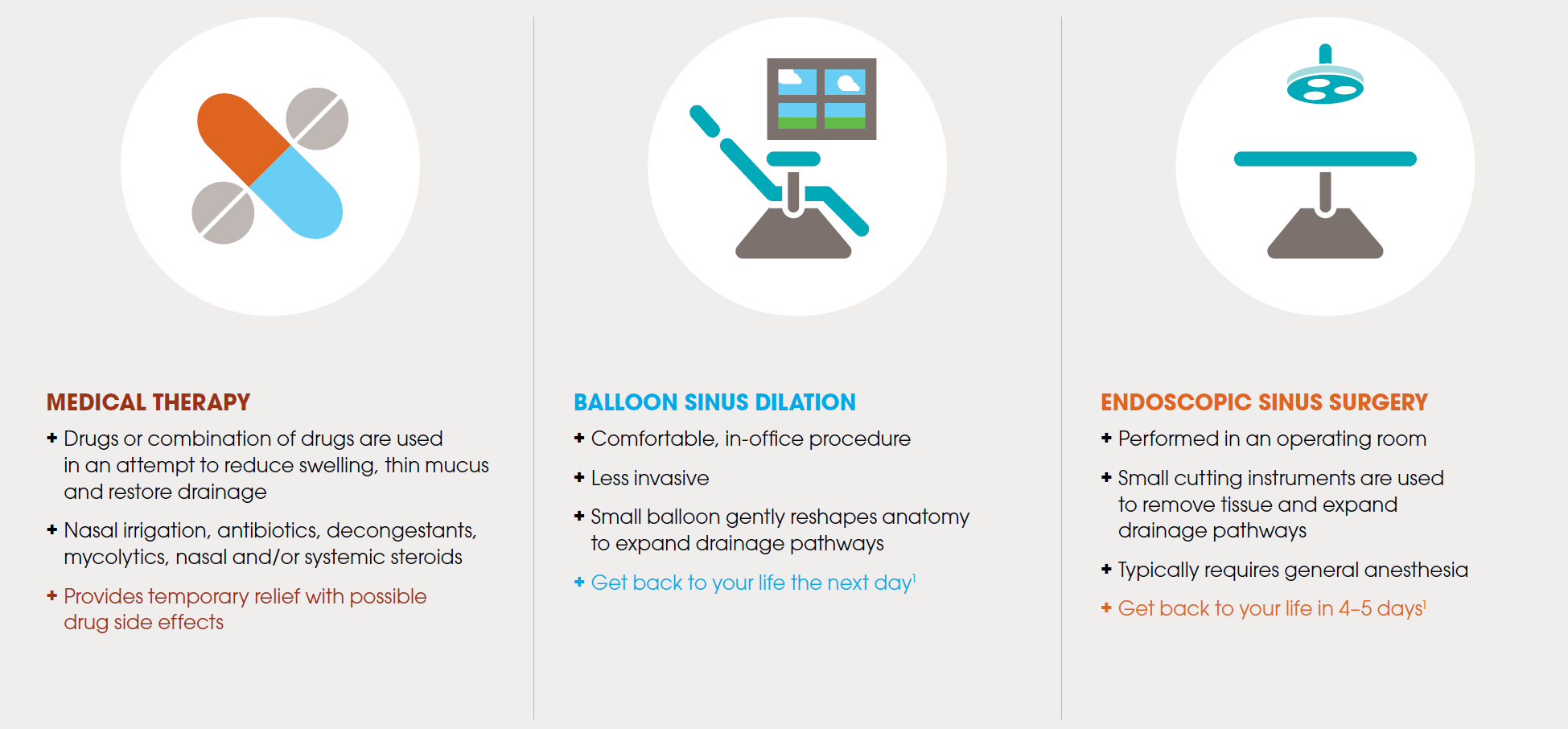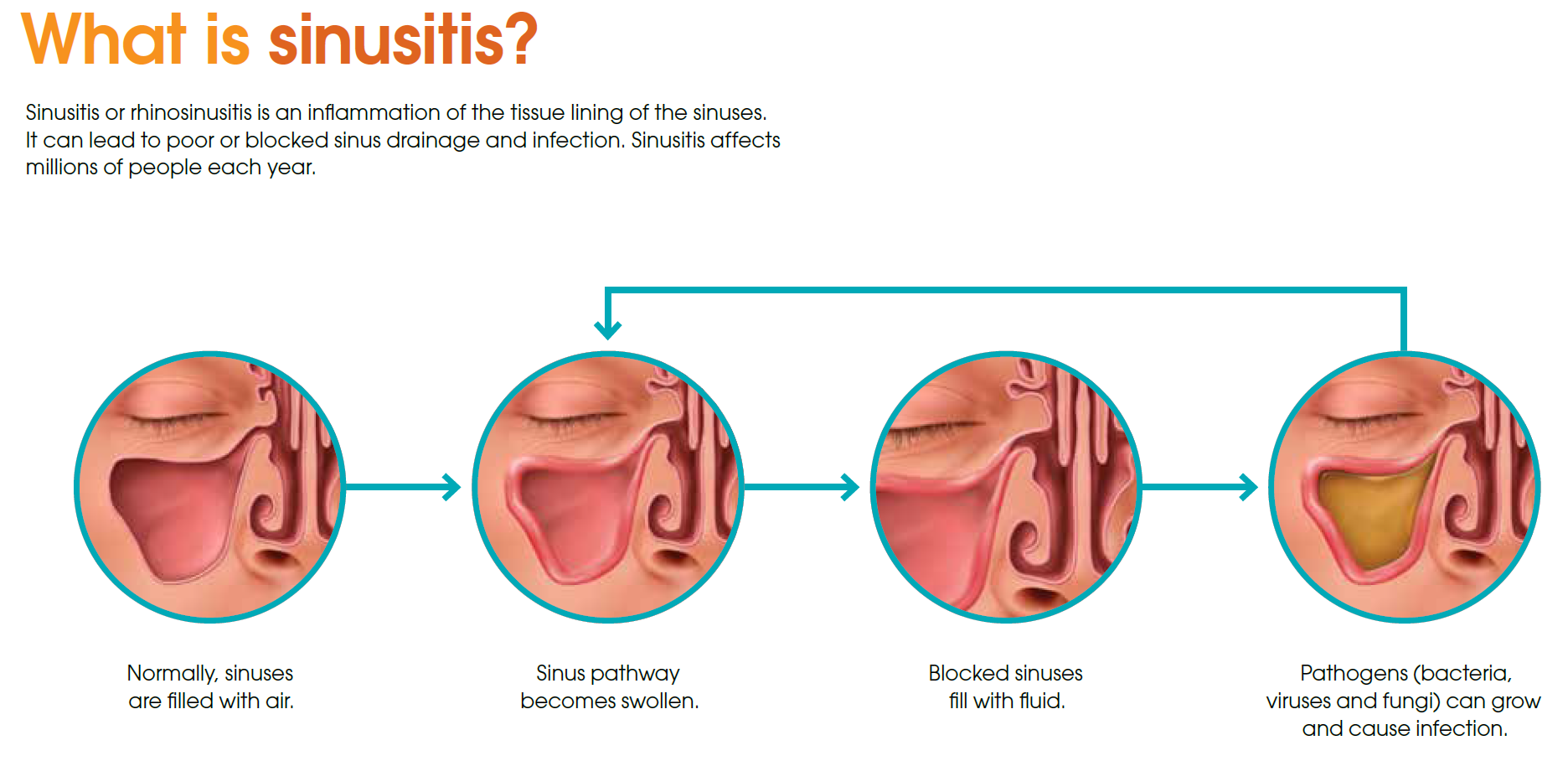Nose and Sinus Specialist

Sinus and nasal problems can significantly impact your quality of life.
In fact, sinusitis and allergic rhinitis affect millions of Americans every year. The doctors at Central Texas Sinus & Allergy have extensive experience in treating the full array of nasal and sinus issues. Our treatment expertise includes a wide selection of medical treatments, minimally invasive procedures, and surgical options.
Sinusitis
Sinusitis is a highly symptomatic condition that dramatically impacts your quality of life. It is a common condition that affects millions of people every year and is categorized by an inflammation of the lining within the paranasal sinuses.
It can generally be classified by location:
- Maxillary sinusitis is found in the cheek area
- Frontal sinusitis is found above and behind the eyes
- Ethmoid sinusitis is found between or behind the eyes
- Sphenoid sinusitis is found behind the eyes
Sinusitis can also be classified by duration:
- Acute sinusitis lasts for no more than four weeks
- Subacute sinusitis lasts for four to twelve weeks
- Chronic sinusitis lasts for longer than twelve weeks
- Recurrent sinusitis consists of several acute attacks within a year
Request an Appointment
Allergy testing & treatments
nose & sinus
ears & hearing
immunotherapy
balloon sinuplasty
hearing aids
Cause of Sinusitis
Your sinuses are lined with a thin layer of tissue called the mucous membrane, which produces mucus. The mucous from your nose and sinuses protect you from pollen, pollutants, mold, dust, and germs. Your sinuses may become infected if these openings become blocked.
Symptoms of Sinusitis
Because the symptoms are often very similar, sinusitis is often confused for allergies.
Common symptoms of a sinus infection include:
- Nasal discharge
- Congestion
- Facial pain, pressure, or fullness
- Headaches
- Sore teeth
- Bad breath
- Fatigue
- Fever
Sinusitis Treatments
Central Texas Sinus & Allergy’s trained and experienced specialists don’t just treat the symptoms, we get to the heart of the problem by making the right diagnosis and crafting an individualized treatment plan. There are many medications available both over-the-counter and by prescription to treat sinusitis.
Medications used to treat sinusitis include:
- Antibiotics
- Decongestants
- Saline sprays/salt water irrigation
- Pain relievers
- Mucus thinning
- Antihistamines
Balloon Sinuplasty
If pharmaceutical treatment fails, surgery may be an alternative. Balloon Sinuplasty may be a treatment option for you. It is an advanced surgical procedure used to treat sinusitis and other related problems through minimally invasive techniques.
Nasal Obstruction/Deviated Septum
Your nose is one of the most important organs we have on their bodies. Nasal obstruction affects the way that our bodies filter oxygen and breath. Your nasal septum is a thin wall that separates your right and left nasal cavities. If your nasal septum deviates too far to one side, you may have a deviated septum.
Deviated Septum
A deviated septum is a common condition that involves a displacement of the septum, the wall that separates the nostrils, to one side of the nose. Many people with mild to moderate deviations in their septum may not even be aware of the problem if they do not present symptoms. Nearly 80% of people have a deviated septum, which often develops as a result of an injury to the nose.
Common symptoms of a deviated septum include:
- Blockage of one or both nostrils
- Nasal congestion
- Nosebleeds
- Frequent sinus infections
- Facial pain
- Headaches
- Postnasal drip
- Snoring or difficulty breathing
Treatment Options
Medications and treatment may not cure a deviated septum but they can ease the symptoms. This condition makes one nasal passage smaller than the other, which can affect breathing if the displacement is great enough.
Some treatments for the symptoms of a deviated septum include:
- Allergy treatment
- Decongestants
- Antihistamines
- Nasal steroids spray
- Nasal antihistamine spray
Septoplasty
For more severe cases of deviated septums, surgery may be required to correct the displacement. Surgery involves a procedure called a septoplasty that repositions the septum to the center of the nose. Septoplasty is an outpatient procedure that typically takes between 25-45 minutes. Following the surgery, patients generally need to stay at home for five to seven days to recover. Many patients report a significant improvement in their breathing and symptoms following septoplasty.










